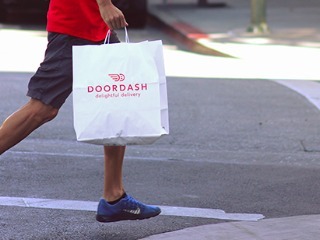
DoorDash may not be the next unicorn after all
New report says $1 billion valuation from three months ago has been downgraded to $700 million
 Yet another sign of trouble in food delivery paradise.
Yet another sign of trouble in food delivery paradise.
Three months ago, sources said that DoorDash was in talks to close a new round of funding at a $1 billion valuation. With previous investor Sequoia Capital leading the round, the report seemed believable thanks to the fact that there was more than one new unicorn every week in 2015.
And yet, not only has the global financial market been in decline for several months now, but VC investing likewise started tightening up last quarter. Today’s climate is much more conservative than it was just a few months ago.
That’s why it comes as little surprise that DoorDash, according to a new report in the Wall Street Journal, may not be valued at $1 billion in its new round after all. Sources say the new valuation should land around the $700 million mark.
We’ve reached out to the company to see if they will confirm the new number and will update when we hear back.
While that figure’s still nothing to scoff at, it’s representative of a third trend in addition to the two (global market decline and VC investing tightening) mentioned above: consolidation and stiff competition in the on-demand food space.
In the first three quarters of 2015 alone, food technology ventures raised approximately $3.6 billion in investments. From 2014 to 2015, the number of deals went up 111 percent and the amount raised went up 55 percent. All this cash has given rise to an extremely crowded space: in addition to DoorDash’s on-demand restaurant delivery service, there’s Instacart, Blue Apron, Chefday, Din, Gobble, GrubHub, HelloFresh, Maple, Munchery, Plated, PlateJoy, Postmates, SpoonRocket, and Sprig… just to name a few.
Besides today’s new report concerning DoorDash, there have already been indications the past couple months of a slowdown and increased consolidation in the food tech space.
Earlier this month, London-based Just Eat spent €125 million in cash (approximately $139.3 million) gobbling up some smaller competitors across Spain, Italy, Brazil, and Mexico to help the online food delivery service expand its international footprint. Even earlier, at the end of 2015, Sidecar (which had pivoted from ridesharing to food delivery) shut down entirely while grocery delivery service Instacart laid off a small portion of its recruiting team.
DoorDash grew quite a bit in 2015, expanding from just four markets (Silicon Valley, Los Angeles Valley, Chicago, and Boston) to 22 markets, including two in Canada. The company says it works with tens of thousands of restaurants, and it has formed special partnerships with global brands like Dunkin' Donuts and KFC. As with other similar services, DoorDash is powered by tens of thousands of “dashers” who freelance for the startup.
The question now is whether DoorDash has the momentum it needs to continue growing in 2016 while facing off with an almost unlimited number of competitors. And the ability to raise capital to fuel its growth stage will play a big part in that.
Related News


Airbnb launches flexible pricing; DoorDash sued by In-N-Out

